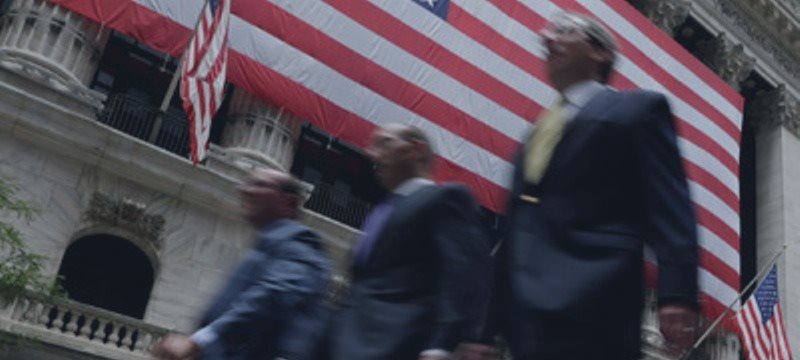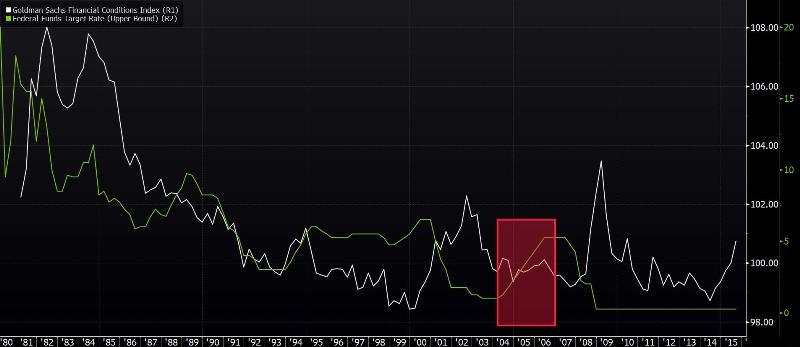
One Reason Market Turmoil Might Actually Make September the Ideal Time to Hike Interest Rates
5 September 2015, 20:00
0
165
Various offer side financial analysts have pushed back their appraisals of when the Federal Reserve will convey its first premium rate trek in light of the tumult in worldwide markets.
More tightly monetary conditions, for example, higher rates, a more grounded U.S. dollar, more extensive credit spreads, and lower value costs—tend to stream through to the genuine economy and have a malicious impact on development.
Goldman Sachs, for example, assesses that the aggregate impact of the U.S. dollar rally subsequent to the second a large portion of 2014 and the late change in value and credit markets will sum to a 0.8 rate point delay genuine GDP development by year's end.
Yet, Torsten Slok, Deutsche Bank's boss universal financial analyst, sees a silver coating in this business sector turmoil that he figures really makes a September liftoff look more appealing.
Speculators, Slok reasons, will see a September rate increment as an approach slip, in which case he would expect yields at the long end of the U.S. Treasury bend and the greenback to go under weight. A leveling bend is for the most part considered a facilitating of money related conditions, and to be sure it was one of the objectives of the Fed's whimsical financial strategies in any case.
"In the event that anything, the story in businesses right now is such that if the Fed does trek in September, then long rates and the dollar will decrease on the grounds that the business will think the Fed is climbing rashly," Slok says in an examination note. "Incidentally, September may be the perfect time for the Fed to trek rates on the grounds that given the way we as of now discuss the economy in businesses a Fed climb in September will probably be connected with a facilitating of money related conditions and not a fixing."
He attests that the national bank should "do the first trek precisely when there is a bearish account in business sectors" to guarantee it doesn't provoke yields farther along the bend to bounce, similar to the case in the scandalous security selloff started by 1994's rate rise.
The fly in the treatment, on the other hand, is that the Fed may be a bit careful about having rate climbs result in a facilitating of monetary conditions.
That is on account of, as Bloomberg's Matthew Boesler has pointed out, the Fed hasn't effectively fixing fiscal conditions in 15 years, a period that incorporates the 2004-06 stretch of rate increments highlighted beneath:

All things considered, what Slok sees as a potential component of a September liftoff is something that—if it somehow happened to endure—could be a bug, as it ended up being amid the past climbing cycle.
Alongside full vocation, the other 50% of the Fed's command is value solidness, and more tightly money related conditions are the intends to this end. By effecting more tightly money related conditions, the national bank has the capacity hose development and in this manner reduce inflationary weights when it considers the economy is very nearly overheating.
The Fed's inability to affect more prohibitive money related conditions amid the climbing cycle that started in 2004 is best spoken to by what got to be known as the Greenspan problem, as long security yields neglected to move higher in sensitivity for the government stores rate.
Among the benefactors to the smoothing yield bend in those days were a worldwide investment funds overabundance that helped put a top on yields at the long end and the excessively broadcasted and moderate coast higher for the government stores rate. Market members at last realized more tightly budgetary conditions amid the second 50% of 2008, with credit spreads blasting, the U.S. dollar surging, and stock costs tumbling.
So neither of the climbing cycles started in 1994 or 2004 resembles an alluring format for the Federal Reserve as it hopes to set out on this next period of fiscal approach. This time is diverse for some reasons—not the slightest of which is the national bank's enormous U.S. Treasury possessions, which apparently give money related policymakers more noteworthy impact over the long end amid the procedure of accounting report standardization.
At the present time, there's no compelling reason to wrestle swelling to its knees.
Be that as it may, whether financial policymakers hold this force stays, for the present, an open questions in https://www.mql5.com/en/signals/111434#!tab=history
More tightly monetary conditions, for example, higher rates, a more grounded U.S. dollar, more extensive credit spreads, and lower value costs—tend to stream through to the genuine economy and have a malicious impact on development.
Goldman Sachs, for example, assesses that the aggregate impact of the U.S. dollar rally subsequent to the second a large portion of 2014 and the late change in value and credit markets will sum to a 0.8 rate point delay genuine GDP development by year's end.
Yet, Torsten Slok, Deutsche Bank's boss universal financial analyst, sees a silver coating in this business sector turmoil that he figures really makes a September liftoff look more appealing.
Speculators, Slok reasons, will see a September rate increment as an approach slip, in which case he would expect yields at the long end of the U.S. Treasury bend and the greenback to go under weight. A leveling bend is for the most part considered a facilitating of money related conditions, and to be sure it was one of the objectives of the Fed's whimsical financial strategies in any case.
"In the event that anything, the story in businesses right now is such that if the Fed does trek in September, then long rates and the dollar will decrease on the grounds that the business will think the Fed is climbing rashly," Slok says in an examination note. "Incidentally, September may be the perfect time for the Fed to trek rates on the grounds that given the way we as of now discuss the economy in businesses a Fed climb in September will probably be connected with a facilitating of money related conditions and not a fixing."
He attests that the national bank should "do the first trek precisely when there is a bearish account in business sectors" to guarantee it doesn't provoke yields farther along the bend to bounce, similar to the case in the scandalous security selloff started by 1994's rate rise.
The fly in the treatment, on the other hand, is that the Fed may be a bit careful about having rate climbs result in a facilitating of monetary conditions.
That is on account of, as Bloomberg's Matthew Boesler has pointed out, the Fed hasn't effectively fixing fiscal conditions in 15 years, a period that incorporates the 2004-06 stretch of rate increments highlighted beneath:

All things considered, what Slok sees as a potential component of a September liftoff is something that—if it somehow happened to endure—could be a bug, as it ended up being amid the past climbing cycle.
Alongside full vocation, the other 50% of the Fed's command is value solidness, and more tightly money related conditions are the intends to this end. By effecting more tightly money related conditions, the national bank has the capacity hose development and in this manner reduce inflationary weights when it considers the economy is very nearly overheating.
The Fed's inability to affect more prohibitive money related conditions amid the climbing cycle that started in 2004 is best spoken to by what got to be known as the Greenspan problem, as long security yields neglected to move higher in sensitivity for the government stores rate.
Among the benefactors to the smoothing yield bend in those days were a worldwide investment funds overabundance that helped put a top on yields at the long end and the excessively broadcasted and moderate coast higher for the government stores rate. Market members at last realized more tightly budgetary conditions amid the second 50% of 2008, with credit spreads blasting, the U.S. dollar surging, and stock costs tumbling.
So neither of the climbing cycles started in 1994 or 2004 resembles an alluring format for the Federal Reserve as it hopes to set out on this next period of fiscal approach. This time is diverse for some reasons—not the slightest of which is the national bank's enormous U.S. Treasury possessions, which apparently give money related policymakers more noteworthy impact over the long end amid the procedure of accounting report standardization.
At the present time, there's no compelling reason to wrestle swelling to its knees.
Be that as it may, whether financial policymakers hold this force stays, for the present, an open questions in https://www.mql5.com/en/signals/111434#!tab=history


